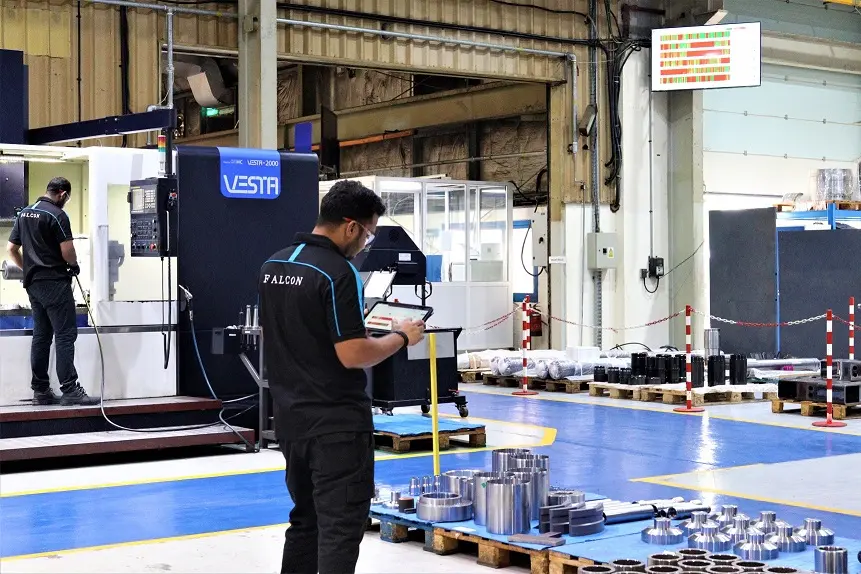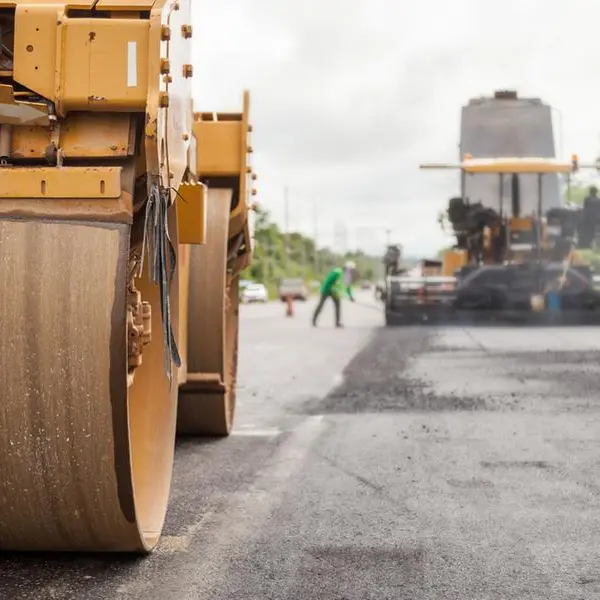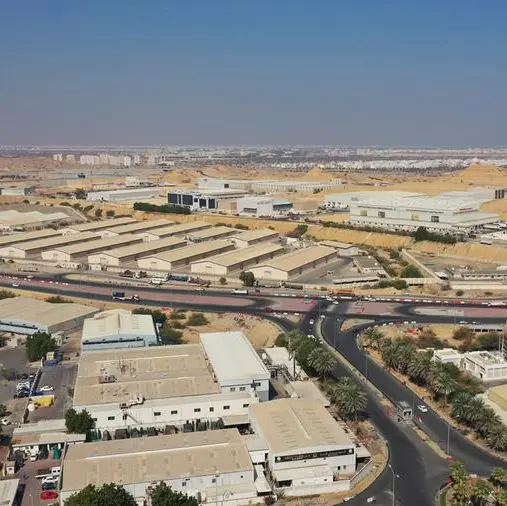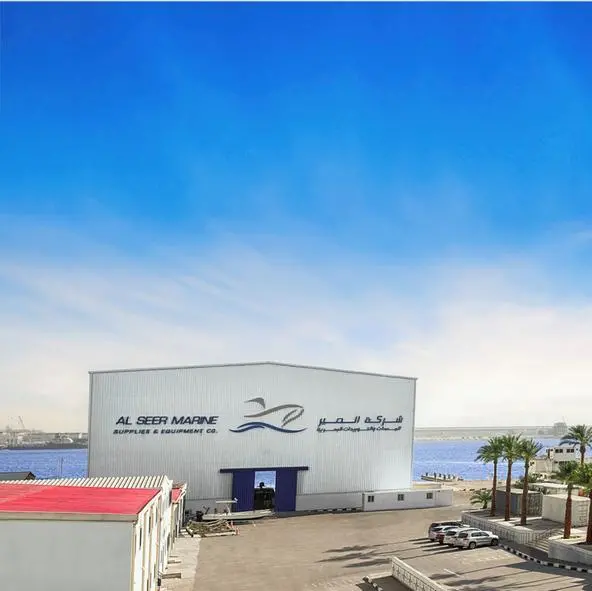PHOTO
Dubai-headquartered engineering and contract manufacturing company Falcon Group is targeting a 75 percent growth in machine utilisation using the ThingWorx IIoT [Industrial Internet of Things] platform provided by US-based Rockwell Automation.
The Group has five industrial operations, one of which is a specialist precision engineering and fabrication company that caters to customers in the aerospace, automotive, marine, healthcare, defense, oil & gas, and steel industries. The company has 16 CNC machines, all of which are essential to its machining capabilities.
Rejin Jose Kurian, Managing Director of Falcon Group, told Zawya Projects that the company increased its machine utilisation from 15 percent to 34.8 percent over the last eight months by using operational insights gleaned from ThingWorx to identify the issues and resolve them.
“We believe we can set a decent number to achieve in a couple of years. So is 75%, and we will not stop at 75% once we are there,” he stated.
On the other hand, Sebastien Grau, Regional Vice President, Middle East, Turkey, Africa, Rockwell Automation, said that most of their offers are on the cloud, which isn’t as readily accepted in the Middle East.
“There is an increasing offer of cloud and data centre providers that are now installing data centres in the country. We can manage sensitive data on-site or use a cloud in the country,” he said.
Grau pointed out that Saudi Vision 2030 and UAE Operation 300B are driving a lot of growth in the industrial sector, with the respective governments supporting local manufacturers to unlock their full potential through digitisation.
Excerpts from interview.
Rejin Jose Kurian, Managing Director of Falcon Group
Where did Falcon Group find the biggest inefficiencies in machine utilisation? What options were considered before signing up for ThingWorx?
Our machines were always occupied. We were very busy; we were unable to accept any urgent client requirements. Our standard lead times were growing day-by-day. Pallets of products were lying all over our workshop. All this seemed like a dream, but when one of our clients pointed us towards lean manufacturing, we realised we were dealing with Work In Progress (WIP), which is considered as waste in lean manufacturing.
Our customers are paying to get the job done, not for waiting in pallets in our facility. We buy material and it stays with us for four weeks, whereas the actual manufacturing time is only 20 hours. We started asking: why four weeks? Why are so many pallets on the shop floor.? These questions triggered the search for inefficiencies in the process.
Among the options considered were [installing new] software with the ERP application, which did have direct data from the machines. The considered software options did not have the scalability of advanced technology. On the other hand, manual interventions would affect performance accuracy.
What kind of savings have you achieved using the ThingWorx IIoT platform in 2022?
We quickly realised the machine generates revenue only when cutting off the swarf. When we wrote special algorithms to extract the exact data from the system, we were able to provide the management with a dashboard highlighting the swarf cut-off times and the rest were termed as downtimes.
The shopfloor cooperated in giving the reasons for the downtimes and our mechanical team is now working on eliminating the reasons for downtime. For example, one of their machine’s performances was 12 percent and reached 15 percent per week at the peak of its operation - the jobs were sub-contracted, considering the machine is busy and can’t be overloaded. The reasons were simple yet critical like unavailability of resources required to run the machines, such as a crane to load the heavy job, special tools for that specific job, program alterations, specific fixtures, etc. Falcon started to work towards lean manufacturing techniques to address these issues. Within eight months, from 15 percent, we could see the machine utilisation grow to 34.8 percent. This number was achieved early last month, and we expect to maintain the trend.
You have set an ambitious future target of increasing utilisation by 75% – a growth of more than 365. How do you plan to achieve it?
Target is just a number you want to work towards. When it comes to machine utilisation, the percentages are set by the specific company based on their comfort levels and requirements. While 100 percent is the ideal number for machine utilisation, it is not practical for our type of industry. Based on data, global efficiency for machine utilisation of job shop companies is approximately 68 to 72 percent. Seeing first-hand the machine utilisation growth from 15 percent to 34.8 percent in the last eight months, we believe we can set a decent number to achieve in a couple of years. [But] we will not stop at 75 percent once there. The way forward is to remove machine wait times, and I am fully involved to ensure that reasons for wait times are addressed and the machine keeps cutting swarf at all times efficiently.
IIOT solutions are regarded as requiring high investment costs. How have you measured ROI in terms of deploying ThingWorx?
When we don’t have capacity, we can either subcontract to a similar machine shop like ours, which compromises profit margins. Or we can spend millions of dollars to buy more machines. It is important to consider:
- When you subcontract, calculate the cost incurred on the whole team working for that project
- Loss in profits as you are sharing the margin with your subcontractor
- Cost of new machines
- Cost of the jobs rejected as we are unable to commit to the lead times
- Cost of the jobs rejected as our prices are not competitive enough, and inability to give discounts as we have not yet optimised our manufacturing.
Considering the above, we can clearly see a victory in terms of value proposition.
In which of these sectors - aerospace, automotive, marine, healthcare, defense, oil & gas, and steel industries - do you see the most significant growth opportunity in 2023?
Post-COVID-19, people have started to travel again, flights are full, and airlines are busy. So aerospace is going to be busy for sure. Many oil and gas companies that managed to survive through the pandemic are ready to explore and produce more. We see a boom in the oil and gas industry as well.
Sebastien Grau, Regional Vice President, Middle East, Turkey, Africa, Rockwell Automation
In Falcon’s case, what insights were gleaned through ThingWorx that pointed to underutilisation?
Machine utilisation rate means how many hours the machine is active versus how many hours it is idle. We could then analyse the reason the asset’s idleness, for example, is it under maintenance, or has there been a change in shifts?
While promoting ThingWorx, how is Rockwell Automation addressing some of the common concerns customers tend to have about IIOT solutions like security, interoperability, etc.?
We are educating and communicating with our customers about the benefits and capabilities of IIoT, as well as the measures we are taking to ensure security and interoperability. This can help build trust and confidence in the company’s IIoT solutions.
Most of our offers are on the cloud and this isn’t as readily accepted in the Middle East. However, there is an increasing offer of cloud and data centre providers that are now installing data centres in the country, so the data stays in the country. We can manage sensitive data on-site or use a cloud in the country.
Which country and sectors do you see the most significant growth for your platform this year?
Grau: Saudi Vision 2030 and UAE Operation 300B are driving a lot of growth in the industrial sector, so we see huge support from Saudi Arabia and UAE governments to support local manufacturers unlock their full potential through digitisation.
Oil and gas and mining are industries that were lagging behind in digitisation, but they are now fast-tracking so that can be on par with the most advanced industries – for example, automotive, F&B, and life sciences. The green trend will be a very positive driver for software. Improving efficiency and productivity and reducing consumption has direct impact on carbon footprint. We’ll see significant growth on the software side of those companies that want to become greener.
What are Rockwell Automation’s plans for localization in the GCC as local governments vigorously promote this aspect?
We are investing in local resources and creating centres of excellence – the first of which is in Saudi Arabia, where we will test and demonstrate our tools to help educate people to better understand the benefits of our technologies.
(Reporting by P Deol; Editing by Anoop Menon)





















